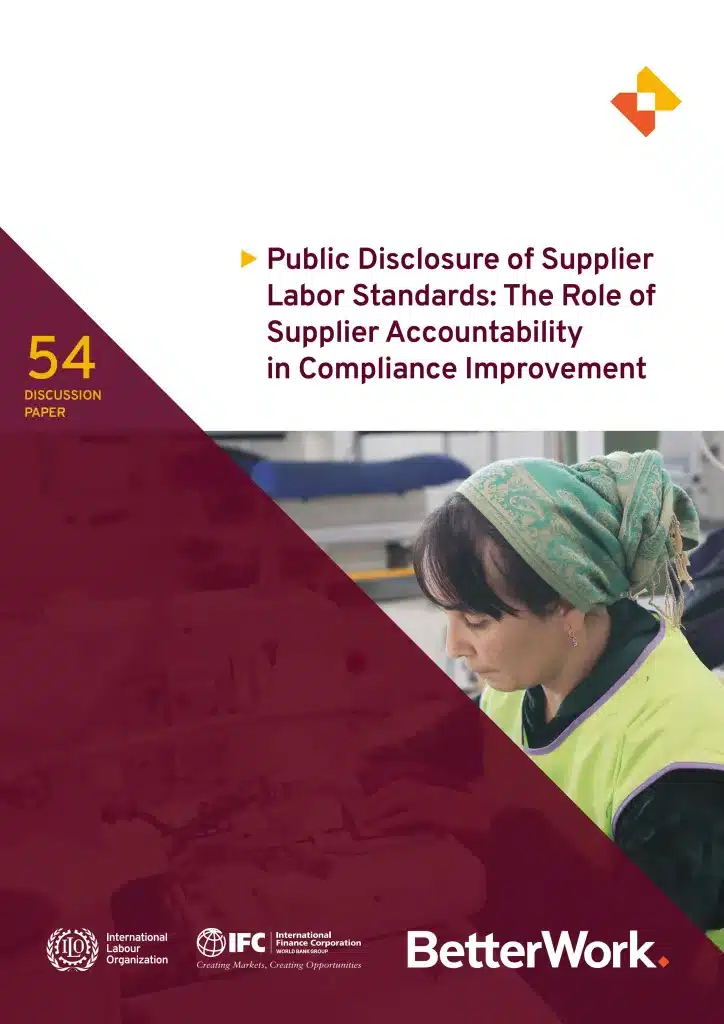Introduction
The discussion paper examines how public disclosure of labor standards in global supply chains affects actual working conditions inside supplier factories. While previous research and activism have focused mainly on the accountability of lead firms, little is known about how transparency plays out on the ground and how local actors influence its effectiveness.
Using data from 5,330 Better Work factory assessments across seven countries between 2015 and 2020, the study finds that public disclosure improves compliance with the standards that are disclosed and also creates positive spillover effects on undisclosed standards. The analysis shows that local factors—such as media scrutiny of non-compliance and strong factory management systems—are crucial for amplifying these effects.
In contrast, transparency efforts at the level of lead firms do not significantly influence supplier compliance. The paper contributes conceptually by shifting attention from lead-firm accountability to supplier accountability, and empirically by demonstrating spillover impacts and offering a method to measure them. It concludes that policymakers and activists should focus more on transparency measures that strengthen local accountability mechanisms to achieve meaningful improvements in labor conditions.
